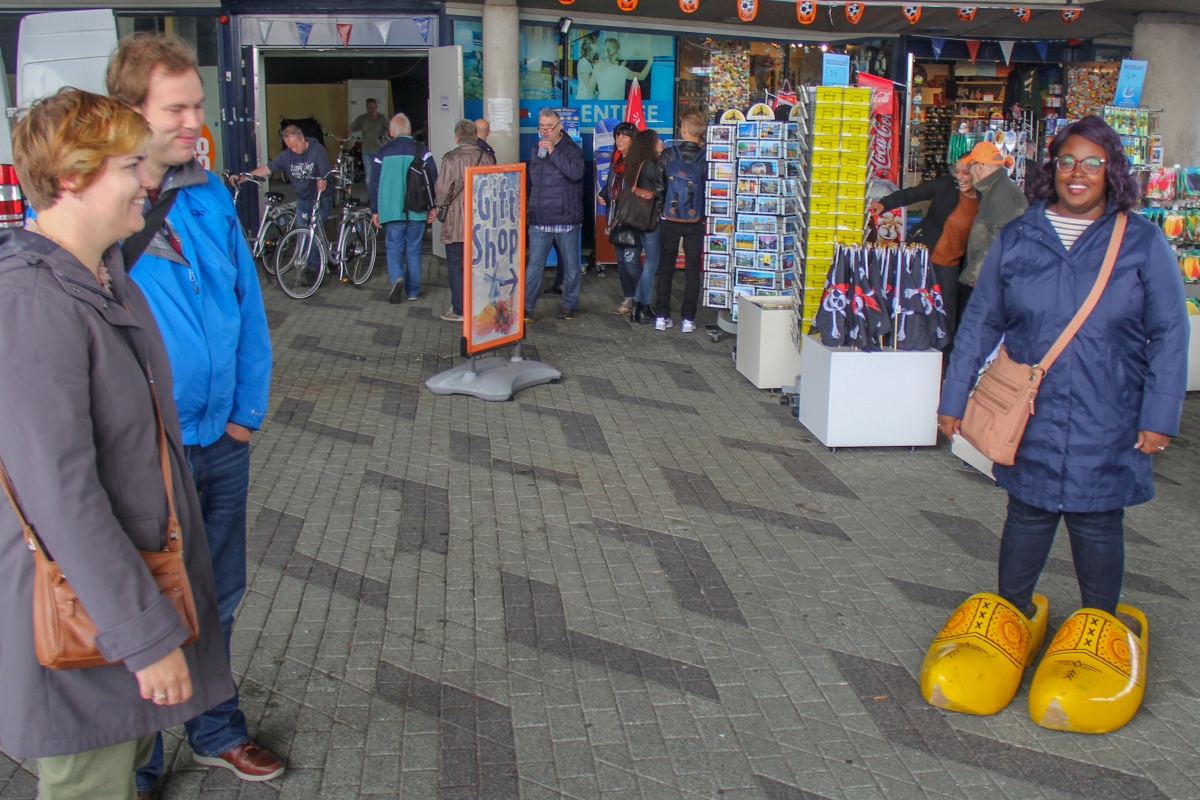I wrote this statement for presentation and discussion on the Fellowship Forum and at a 2007 congregational meeting. It was not formally adopted.
So the proof remains in the pudding.
Statement of principles and goals for churches
God loves you and me. That’s the firm foundation for our faith, as it can be for every one of God’s children. God’s esteem for us is also the foundation of our self-esteem. We know from the history of redemption that God does not hold back this love from those who accept it. From the time of the Fall to now, God has worked tirelessly to re-include the broad swath of humanity that had fallen away, claiming them as his people, to love and to cherish.
We, in turn, love God and our neighbour as ourself. That’s our calling. Our esteem for each person is a reflection of God’s esteem. When our own view of a person is corrupted by sin, a little bit more of that person’s world is broken. God loves absolutely, but he relies heavily on us to to show it.
We have, humanly, only so much love to spread around. We can be more than fully occupied caring for children, parents, spouse, family, friends and colleagues, leave alone any of the other billions of people on this earth. Yet we are called, always, to stretch ourselves by including every person that we meet and hear about (if only in our attitude).
The church (local) is an especially important place for us to exercise love, seeing how it is typically made up of different and difficult people. Being ‘church’ together is good in itself, but it is also good practice for being christian in the world. This document, while it does not lose sight of the big picture, aims to encourage our inclusion by one another in the church.
The more the waryer
A good deal of the discussion around inclusion is centered on groups like women, children, the disabled and visible minorities, but it may be helpful to affirm that God does not love groups – he loves individuals. In fact it is this characteristic of God not to label people that we hope to emulate. Perhaps the most powerful spur to including people from groups is simply the willingness and opportunity to get to know them personally. Policies on inclusion are no substitute for the personal touch.
It is also inevitable that people will slip through the cracks of a ‘group-think’ platform. The causes of disenfranchisement can be unique, and even at odds among those of who are labelled alike. And some labels can scare off people who might otherwise easily warm up to the person. We cannot afford to exclude anyone, any way.
Nevertheless, experience has shown that there are common issues around inclusion for people within certain social segments. We cannot ignore problems that are pervasive, and we do well to anticipate problems that have not yet occurred. So, without absolving ourselves of our call to simply include people because they are, like us, children of God, this document aims to open our eyes and our hearts still further by considering concerns within various groups.
Including people of all abilities
Experiencing disability brings into focus the abilities that we often take for granted; walking and talking, seeing and hearing, full understanding and good health. We celebrate these gifts and do not flinch from acknowledging and mourning their loss. We cannot eradicate many disabilities but we can accomodate them and we can encourage and enable every person who has them to use their abilities freely and fully.
- We will go out of our way to involve people with disabilities in church services and activities.
- We will modify church practices and facilities to reduce the impact of limitations stemming from disabilities.
- We will raise awareness in the congregation and among its leaders of the nature of disabilities and of the people who have them.
Including people of all ages
From the newborn child to the octogenarian, every member has a special place. Their various qualities of being simply delightful, experienced, youthful, wise, energetic, optimistic, naive, stable, flexible, fruitful, questioning and sure are all integral to our community. We cherish each expression of life’s journey and seek to draw each other into full life in the church.
- We will offer programs for all age groups among the youth.
- We will regularly address the spiritual needs of the various youth age groups. participating in worship, at their level.
- We will regularly sing songs that are familiar to or favourites of all age groups, including the ‘ancient of days’.
- We will encourage young people to express and profess their faith.
- We will involve young people in discussions around decisions that need to be made by the church.
Including people of both genders
The difference between men and women is such a fundamental part of our lives that we often fail to appreciate how enriching it is. There are many good ways for couples to capitalize on this difference, especially as they raise a family. But, within the church, as in the working world, the difference is more in character (and looks of course) than in function.
- We will not allow our own language, privately or in worship, to give the impression that males are in any way better, more significant, more suited or rightfully dominant than women.
- We will adjust the language of the Bible, of historical documents and of songs, where easily possible, to remove this impression
- We will footnote and occasionally dwell on language usages and cultural conventions that seem offensive today but can’t easily or honestly be edited out, without necessarily maligning or excusing them.
- We will go out of our way to use examples of women and feminine metaphors of God from the Bible in our teaching and liturgy.
- We will not pass over the leadership potential of people because they are male or female
Including people of other races and ethnic backgrounds
We are still living within remembering distance of times and places where homogeneous race and ethnicity enveloped us like a comfortable blanket. Stories and traditions, recognizable physical and character traits helped us to feel rooted and at home. We affirm and celebrate these roots, even as they get a bit tangled. But the nationalism and racism that often grow out of it have no place among us. Without being ashamed of our own heritage, we are glad to accept into fellowship people who have different backgrounds.
- People of different backgrounds will share, and encourage the sharing of roots and traditions.
- We will encourage and plan encounters between Christians from other churches and backgrounds.
- We will not pass over the leadership potential of people who were not born white into the Christian Reformed Church.
Including people of all economic means
We are tremendously blessed if we compare our material well-being with much of the world. That is cause for thanksgiving. To the extent that there is still a wide variation of economic well being among us, we support each other when we can, enabling people to experience full fellowship and service even through times of financial stress.
- We will make it possible for people who can’t afford it to attend workshops, classis and synod meetings.
- We will pay child care costs and expenses related to church activities where needed. We will not pass over the leadership potential of people who are not financially successful.
Henry de Jong, Oct 10, 2007
![]()


